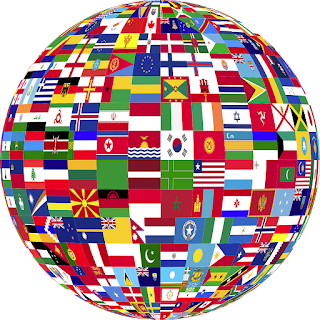World power politics refers to the competition and interactions among the major global powers in the international system. It involves the pursuit of national interests, influence, and power by states through various means, including diplomacy, military strength, economic resources, and ideological alignment.
Historically, world power politics has been characterized by the competition between major powers for dominance and influence. These powers have included empires, such as the British Empire and the Soviet Union, and more recently, nation-states such as the United States, China, Russia, and European Union member states.
Key aspects of world power politics include:
Balance of Power: The concept of balance of power involves states seeking to maintain or shift the distribution of power in their favor, either through alliances, military capabilities, or other means. It aims to prevent any single state from dominating the international system and potentially threatening the interests of other states.
Geopolitics: Geopolitical factors, such as geography, access to resources, and strategic locations, play a significant role in world power politics. States often pursue control over vital resources, trade routes, and advantageous geographic positions to enhance their power and influence.
Diplomacy: Diplomatic efforts, including negotiations, treaties, and alliances, are crucial tools in world power politics. Diplomatic engagements can shape international relations, resolve conflicts, establish cooperation, or be used to advance national interests.
Military Power: Military strength and capabilities remain essential elements of world power politics. States often invest in their military forces to deter potential threats, protect their interests, and project power globally. Military actions, such as interventions and conflicts, can significantly impact the balance of power and shape the geopolitical landscape.
Economic Influence: Economic factors, such as trade, investment, and control over key industries, are central to world power politics. States leverage economic power to gain influence, establish dependencies, and enhance their geopolitical standing. Economic sanctions and trade wars are among the tools employed in economic power struggles.
Ideological Competition: Ideology and political systems have historically played a role in world power politics. Competing ideologies, such as democracy, communism, and nationalism, can shape alliances and conflicts, as states seek to promote their preferred systems and undermine rival ideologies.
Multilateral Institutions: International organizations and multilateral institutions, such as the United Nations, World Bank, and regional organizations like the European Union, provide platforms for states to engage in global governance and exert influence. These institutions can serve as arenas for world power politics, where states compete for influence and shape the rules of the international order.
It's important to note that world power politics is dynamic and subject to change based on shifting power dynamics, emerging challenges, and evolving global trends. The interactions between major powers shape the international system and have significant implications for global security, stability, and economic development.





0 Comments